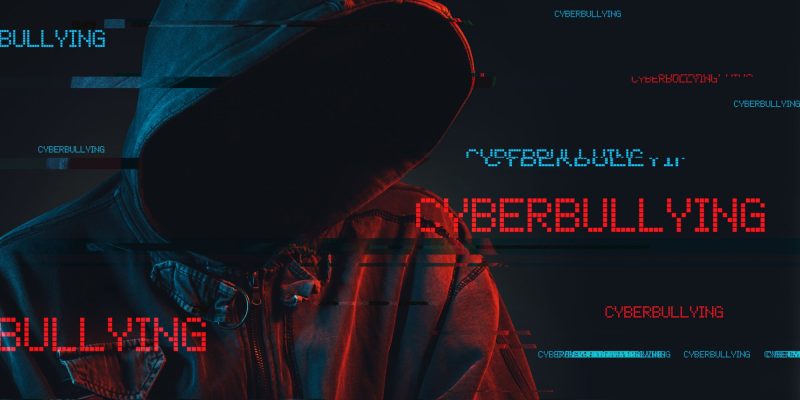Understanding Cyberbullying
What is it?
To better understand Cyberbullying, we need to first define it. According to stopbullying.gov, it’s essentially bullying that includes sending, posting, or sharing negative, harmful, false, or mean content about someone else. This also includes sharing personal or private information about someone else causing embarrassment or humiliation. Unfortunately, many Kenyans today are either victims or perpetrators of cyber-bullying, knowingly or unknowingly.
It spreads very easily and very fast. Should you get into a bully concentrated zone, your mere presence could be enough to instigate you to join the Keyboard warriors (People who type without really thinking about a situation). If you do not sanitize your mind from them, your days are numbered.
Platforms Kenyans Use to Bully People Online
Many Kenyans online have been affected by this virus. Due to increased digital penetration, more and more of us are using digital social platforms to communicate and interact more than ever before. Famous platforms known for excessive bullying include Facebook Groups such as Kilimani Mums and Dads and Buyers Beware.
However, our world-renowned twitter community commonly referred to as K.O.T. ( Kenyans On Twitter ) takes the crown. Despite the fact that there is an actual KOT page, the mere presence of Kenyans on Twitter is a constantly rumbling earthquake.
Remember the ‘hotbed’ of terror’ incident when Kenyans made CNN apologise for using the wrong words to describe the current situation at the time. This goes without mentioning the feud fights we constantly have with different countries on the media too.
Toxic Twitter
Kenyans on Twitter can be harsh and for many of us, it’s all fun and games until we start attacking each other. People tend to go so deep into detail with cyberattacks that they don’t know how badly it affects the recipient. Sensitive topics like rape, feminism, equality, tribalism and fat-shaming are largely downplayed on these platforms.
For example, speaking on our most recent podcast, Wabosha Maxine states that body-shaming is one of the most rampant forms of cyberbullying.
The most recent account of this is what happened to TikTok star Azziad. There’s just a section of KOT that don’t like to see happiness. When Azziad went viral for her Utawezana Challenge video, random people started digging up Azziad’s old photos, body-shaming her and even comparing her looks for comical purposes.
Now here’s the problem, it didn’t stop there. Somehow, her phone number was shared publicly and the cyberbullying moved from social media for a few likes and RTs to personal attacks on WhatsApp and calls. Fortunately for us, there are still some people who realize the seriousness of this issue and are not afraid to speak up against it.
A while back, you guys body shamed Bosibori & she didn't break down then she has a very tough skin. You don't have to body people for Retweet and likes. At the end of the day, what and how would you gain from it? Do you enjoy seeing others suffer? #IStandWithAzziad
— BRAVIN YURI (@BravinYuri) April 6, 2020
Side Effects of Cyber-Bullying


Image Courtesy Kids Helpline
For those who don’t know what effects you have on people when you knowingly or unknowingly bully them, here are some to think about;
- A drop in self-esteem;
- Withdrawal from society and family;
- Fear of gadgets, digital communication and social platforms;
- Avoiding work and school environments;
- Avoiding social events and gatherings;
- Losing weight or changing appearance to try and fit in;
- Inflicting self-harm;
- Suicidal and violent thoughts;
- Personality shift i.e. anger, depression, crying, withdrawal
So, What’s The Solution?


The only way to tackle cyberbullying is by creating awareness and promoting the importance of digital empathy and digital etiquette. Simply, treat your neighbour the way you would like to be treated. Enforce the same moral values we expect all people to abide by day to day online. This way, our children can embrace this if we lead by example.
When you feel attacked, there’s also a couple of things you could do to keep yourself from being drawn into the whirlpool that is cyberbullying.
- As advised by Laura and Wabosha on the podcast, don’t respond to any messages or posts written about you, no matter how hurtful or untrue. Socially distance yourself from these comments and these type of people. Responding will only make the situation worse and provoking a reaction from you is exactly what the cyberbullies want, so don’t give them the satisfaction.
- Don’t seek revenge on a cyberbully by becoming a cyberbully yourself.
- Save the evidence of the cyberbullying, keep abusive text messages or a screenshot of a webpage, for example, and then report them to a trusted adult.
- Report threats of harm and inappropriate sexual messages to the police.
- Prevent communication from the cyberbully, by blocking their email address, cell phone number, and deleting them from social media contacts.
- To prevent yourself from being a cyberbully, if you don’t need to say it, don’t say it. You do not need to publicly express your disappointment. If you must, physically talk to someone about it. If you have a problem with the post, reach out respectfully to the user and confront the issue in a calm manner.
Repercussions
As we said earlier, people gain confidence when they get likes and retweets for being ‘funny’ or posting sarcastic comments. Then, they hide behind their online personas largely unaware that cyber-bullying laws exist.
According to Computer Misuse and Cyber Crimes Bill 2018, Article 27 addresses the issue of cyber harassment.
(2) A person who commits an offence under subsection (1) is liable, on conviction, to a fine not exceeding twenty million shillings or to imprisonment for a term not exceeding ten years, or to both.
Article 27 (2) of The Computer Misuse and Cyber Crimes Bill, Act No. 5 Of 2018, Laws of Kenya
So, don’t be too quick to join other keyboard warriors. Like other diseases, I can gerrit, you can gerrit, anybody can gerrit. Think about what you want to post before you post it. Think about what it might do to others before you air your views. #StopCyberbulling






Comments